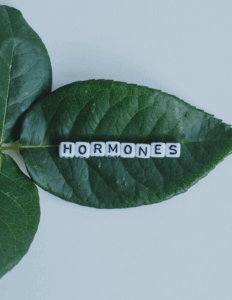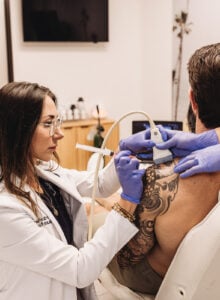Depression is a severe mental disorder that impacts the patient and their loved ones. It is estimated that 21 million adults in the United States alone suffer from depression. That’s nearly 8.4% of the population.
Depression doesn’t just make people sad; it can also lead to various physical problems. People who are depressed are more likely to suffer from chronic illnesses, such as heart disease and diabetes. They are also more likely to abuse substances
Depression is one of the leading causes of suicide. According to the World Health Organization, over 700,000 people die due to suicide every year, with depression being a significant factor.
However, as severe as depression is, the light at the tunnel’s end could be within reach. Ketamine IV infusion therapy is one treatment option showing great promise in treating depression. This blog post will introduce ketamine infusion therapy and discuss its potential for treating depression.
What is Depression?
Depression is a mental illness characterized by sadness, anxiety, hopelessness, sleep problems, pain, low self-esteem, and loss of interest in activities. Depression is more than just feeling down or going through a tough patch; it can severely impair a person’s ability to function daily.
While depression can affect people of any age, it is most commonly diagnosed in adults aged 18 and over also more likely to experience depression than men.
Types of Depression
There are different types of depression, each with specific symptoms. Some types of depression are:
- Major Depressive Disorder
- Persistent Depressive Disorder
- Postpartum Depression (PPD)
- Seasonal Affective Disorder (SAD)
- Premenstrual Dysphoric Disorder (PMDD)
- Bipolar Disorder
Symptoms of Depression
The symptoms of depression can vary from person to person. Some people may only experience a few symptoms, while others may experience many. The most common symptoms of depression include:
- Persistent feelings of sadness or anxiety
- Hopelessness
- Loss of interest in activities once enjoyed
- Sleep problems (insomnia or sleeping too much)
- Fatigue
- Eating problems (loss of appetite or overeating)
- Difficulty concentrating
- Irritability
- Physical problems (such as headaches or back pain)
- Thoughts of death or suicide
We want to share about two of our favorite treatments: the O-Shot®, or “Orgasm Shot,” and the Shockwave Therapy.
Ketamine IV Infusion Therapy and How It Helps Depression
Ketamine IV infusion therapy is a pain-free, outpatient procedure administered under medical supervision. Ketamine’s fascinating history began in 1962 when it was created as an anesthetic for battle-wounded soldiers during the Vietnam War.
It gained popularity in the medical community and was soon used as a human and animal anesthetic worldwide. Shortly after, researchers began to realize that ketamine had psychedelic properties.
This led to ketamine becoming a popular party drug known as “Special K” in the ’70s and ’80s. Although ketamine is still used as a party drug, it is also gaining popularity as an effective treatment for depression, anxiety, and other mental health conditions. Decades ago, the FDA authorized its “off-label” usage as an anesthetic for treatment-resistant patients, but it has not been yet approved.
When abused, ketamine has a few adverse side effects, such as dissociation, hallucinations, feelings of euphoria, and out-of-body experiences. However, unlike other psychedelics, ketamine is non-addictive; for this reason, many people are beginning to view ketamine as a powerful therapeutic tool.
Types of Ketamine Therapy
Here are a few of the most common types of ketamine therapy:
Ketamine IV Infusion Therapy
Ketamine infusion therapy is an effective treatment for depression. The medication combines “R” and “S” ketamine, mirror-image molecules.
The infusion is delivered directly to the bloodstream, bypassing the digestive system. This allows for quicker absorption of the medication and an immediate effect on the brain chemistry.
The ketamine infusion is typically administered over 15 minutes to 45 minutes. Patients will be closely monitored during and after the infusion to ensure their safety and comfort. There is no downtime following the injection, and patients can resume normal activities immediately.
Ketamine Nasal Sprays
Ketamine nasal spray is a non-invasive option for people seeking an alternative to IV infusion therapy. The medication is delivered directly to the bloodstream through the nose and is an effective treatment for depression.
The FDA has approved ketamine nasal spray as a therapy for depression and scientific trials have demonstrated its efficacy in treating depression.
Ketamine nasal spray is typically administered two to three times per day. The medication is usually well-tolerated and has few side effects.
Ketamine Oral Solutions
Ketamine oral solutions are one of the most popular types of ketamine therapy available. They offer a fast-acting, convenient way to get ketamine treatment.
Ketamine oral solutions are available in various formulations to meet individual patient needs. They are also easy to take, with no preparation or mixing required. Taken as directed, ketamine oral solutions are often effective within minutes.
Because they are so fast-acting, they are often used for short-term treatment regimens or for situations where immediate relief is needed. Patients looking for a convenient, effective way to get ketamine therapy, may find ketamine oral solutions to be a helpful option.
How Ketamine Therapy Helps Depression
Ketamine acts to effectively treat depression by:
- Affecting neurotransmitters and receptors in the brain that are involved in depression
- Restoring synaptic connections in the brain
- Increasing neuroplasticity
- Reducing inflammation in the brain
Patient Responses to Ketamine Therapy
The effects of ketamine therapy on depression can be immediate. For others, it may take several sessions before they notice a difference, with some patients reporting a significant improvement within six infusions.
Ketamine therapy is usually given as a series of infusions over days or weeks. The number of infusions and the frequency of treatments are based on a patient’s individual needs.
Most people who receive ketamine therapy for depression report significant improvement in their symptoms. Sometimes, the effects can be long-lasting, and patients may need only occasional booster treatments to maintain results.
Ketamine Therapy Side Effects
Ketamine therapy is generally well tolerated, with most people reporting only mild side effects. The most common side effects include:
- High Blood Pressure
- Increased Heart Rate
- Hallucinations
- Dizziness
- Loss of Appetite
- Nausea or Vomiting
- Sleeplessness or Insomnia
- Muscle Movement
- Perceptual Disturbances and Dissociation
Cost of Ketamine IV Infusion Therapy
The cost of ketamine therapy can vary depending on the treatment center and the recommended number of treatment sessions. However, most insurance companies will cover at least a portion of the cost of ketamine therapy.
Treatment centers typically charge between $400 and $900 per infusion; most patients require between three and six sessions to experience significant relief from their symptoms.
Given the high efficacy of ketamine therapy, the cost is generally considered well worth it for patients who can obtain insurance coverage. Several financing options are available for those not covered by insurance to help make treatment more affordable.
Ultimately, the cost of ketamine therapy should not be a deterrent for patients who could potentially benefit from this life-changing treatment.
The Future of IV Ketamine Infusion Therapy
Ketamine IV infusion therapy is a promising new treatment for depression that offers a safe, effective alternative to traditional antidepressant medications. With its rapid onset of action and long-lasting effects, ketamine therapy is quickly becoming the go-to treatment for patients seeking relief from their symptoms.
More positive results are likely as more research is conducted on ketamine therapy. In the meantime, ketamine infusion therapy is providing hope for those who have not been able to find relief from other treatments. For those struggling with depression, ketamine IV infusion therapy may provide the help they need.
Ketamine Infusion Therapy at Resilience Integrative Wellness
If you’re interested in exploring the potential of ketamine infusion therapy, we recommend reaching out to Resilience Integrative Wellness. Located just down the road from our San Diego, CA location, Resilience Integrative Wellness specializes in depression treatment using ketamine. Their facility is wholly dedicated to this transformative therapy and their team comprises anesthesiologists, nurse anesthetists and nurses who are experts in the field of ketamine mental health treatments.
Conclusion
Ketamine IV infusion therapy has emerged as a promising treatment for major depression and various mood disorders. The therapy operates by elevating levels of the neurotransmitter glutamate in the brain, enhancing nerve cell communication and potentially leading to an antidepressant effect. As a treatment option, ketamine IV infusion therapy is safe, well-tolerated and has minimal side effects. It presents a groundbreaking treatment avenue for patients battling depression and other mood challenges. For expert care in this domain, Resilience Integrative Wellness stands as a trusted and nearby choice.








